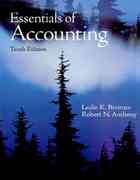Question
Below you will find a list of individuals. Your task is to sort individuals into three categories: employed (E), unemployed (U), and not in the
- Below you will find a list of individuals. Your task is to sort individuals into three categories: employed (E), unemployed (U), and not in the labor force (N). You will do this by reading descriptions of the individuals and assigning them the definitions of unemployed, employed, or not in the labor force. In some cases, you may not be sure, but make your best guess based on the available information.
As a reminder, here are the definitions:
- Employed: The individual has a full-time or part-time paid job; this can include self-employment. Individuals who are employed are considered to be in the labor force.
- Unemployed: The individual does not have a job but has looked for a job sometime in the past 4 weeks. Individuals who are unemployed are considered to be in the labor force because they have been recently looking for work.
- Not in the Labor Force: Neither employed nor unemployed. The individual does not have a job and has not looked for work in the past four weeks.
Chen: Works for the county government, managing finances. Susanna: Takes college classes full-time and waits tables part-time at a restaurant in the evenings. Edward: Retired and does volunteer work on Sundays. Muhammad: Was laid off in the last recession and gave up looking for work; has not looked for 2 months. Rosa: Recently left a job because of a move and is applying for a similar job in her new city. Alex: Has a disability that impacts his ability to work and does not care to work. Samra: Teaches high school chemistry. Javier: Quit a job he hated and posted his resume on a job search Web site 2 weeks ago. Yuki: Lost a job in manufacturing and is in school, retraining for a different career. Casey: Recently graduated and attends job fairs. Kazim: Has a part-time job as a personal trainer but would like to work more hours. Eun-Mi: Has several part-time jobs: hand model, web site designer, and consultant. Taylor: Stays at home full time to take care of children. Mandeep: Runs his own business, catering corporate events. Gustavo: Quit his stockbroker job and is traveling the world for a year to "find himself." Alice: Would like a job but gave up looking because of a bad job market. The last job application she submitted was 3 weeks ago. Wei: Retired air force veteran; likes knitting. Stephen: Was laid off and does not expect to be called back to work. He has looked for other jobs to be safe. Min-Su: Human resources manager at a law firm. Amita: Works as a police officer in Los Angeles County.
- Use this data to calculate the unemployment rate, employment-to-population ratio, and labor force participation rate.
Unemployment rate = # unemployed / labor force 100 Employment-to-population ratio = # employed / total population 100 Labor force participation rate = labor force / total population 100
- Submit IN THIS FORMAT. (Copy and Paste and then fill in):
Total Employed: ______
Total Unemployed: ______
Total Not in Labor Force: ______
Unemployment Rate: ______
Employment to Population Rate: _____
Labor Force Participation Rate: ______
I would be classified as ___________________ because I ________________________________.
Step by Step Solution
There are 3 Steps involved in it
Step: 1

Get Instant Access to Expert-Tailored Solutions
See step-by-step solutions with expert insights and AI powered tools for academic success
Step: 2

Step: 3

Ace Your Homework with AI
Get the answers you need in no time with our AI-driven, step-by-step assistance
Get Started


